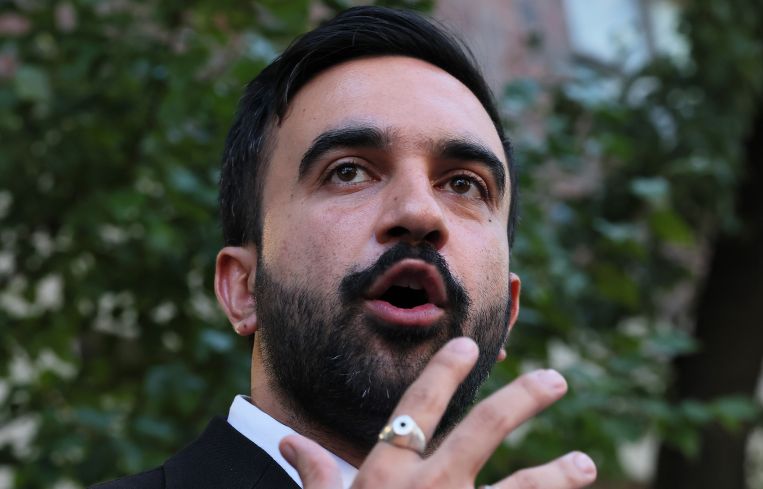JLL to Real Estate’s Chicken Littles: The Sky Would Be Fine Under Mamdani
A white paper from the brokerage services giant breaks down the checks on many of the presumptive New York mayor’s housing ambitions
By Larry Getlen September 24, 2025 10:06 am
reprints
A recent white paper from JLL Capital Markets concludes that if Queens Assemblyman Zohran Mamdani is elected the next mayor of New York City as expected, his effect on the multifamily market will be almost negligible, in part due to the many checks and balances required to execute his loftiest housing-Related ambitions, Commercial Observer has learned.
After a race in which Mamdani proposed freezing rents on all rent-stabilized apartments, raising taxes on wealthy New Yorkers and opening state-run grocery stores (about one per borough, Mamdani has said in the past), chatter grew quickly among New York’s elite about how great it would suddenly be to live in South Florida.
Some of the biggest names in commercial real estate have held panicked meetings of late, strategizing ways to prop up Andrew Cuomo in the New York City mayoral race.
According to The New York Times, an early September email from Related CEO Jeff Blau, inviting many of his fellow CRE executives to an urgent in-person meeting with Cuomo the following morning, read, “The time to act is now. If we fail to mobilize, the financial capital of the world risks being handed over to a socialist this November. We cannot — and will not — let that happen.”
At the meeting the next day, according to the Times, Marc Altheim, founder of Atlantic Development Group, told the assembled, “I’m very concerned that New York City is going to be decimated if the other guy takes office,” he said, referring to Mamdani.
But the JLL white paper — which analyzed “the actual scope of mayoral authority, historical market performance across different administrations, and the fundamental strengths that continue to position New York City as the nation’s leading real estate investment market” — concludes that the actual impact of a Mamdani mayoralty on housing in particular would be nowhere near that dire, as any drastic potential changes would be held in check by numerous factors.
“While presumptive Mayor Zohran Mamdani’s platform includes policies that may concern real estate investors, it’s critical to understand the actual extent of mayoral authority,” reads the report. “Our analysis reveals that most policies affecting commercial real estate cannot be unilaterally implemented.”
JLL follows this quote with a chart listing a series of key issues and potential policies Mamdani has discussed, including “standardized commercial rent control,” “200K permanent affordable, union-built homes in 10 years” and “union rights,” and shows that every one requires at least some form of federal, state or City Council approval.
The white paper also emphasized that over the past 25 years, broad economic conditions have had a much stronger influence on multifamily housing’s market performance than any mayor’s “political affiliation or policies.”
The company also emphasized the unique strength of the city’s market fundamentals, including how New York City “lead(s) the nation in effective rent growth,” and how, when combined with factors such as the city’s unique supply constraints, demographic trends and population inflows, New York is “position(ed) for continued outperformance regardless of political leadership.”
A historical view of political wish lists versus real estate reality reaches the same conclusions. JLL’s 25-year analysis of multifamily housing performance, for instance, found that mayors with vast and wide housing ambitions rarely got those dreams off the ground.
“Looking at the historical record of policy implementation across different mayoral administrations reveals a consistent pattern: the gap between campaign promises and actual policy implementation is substantial, particularly for policies requiring multi-level government approval,” the paper reads. “Market fundamentals and broader economic conditions — not mayoral policies — are the primary drivers of performance.”
For all these reasons and more cited in the 18-page white paper, JLL concludes that New York’s real estate fundamentals and the checks and balances that surround them are simply too strong for any one mayor to knock them — or New York City — down.
Larry Getlen can be reached at lgetlen@commercialobserver.com.



